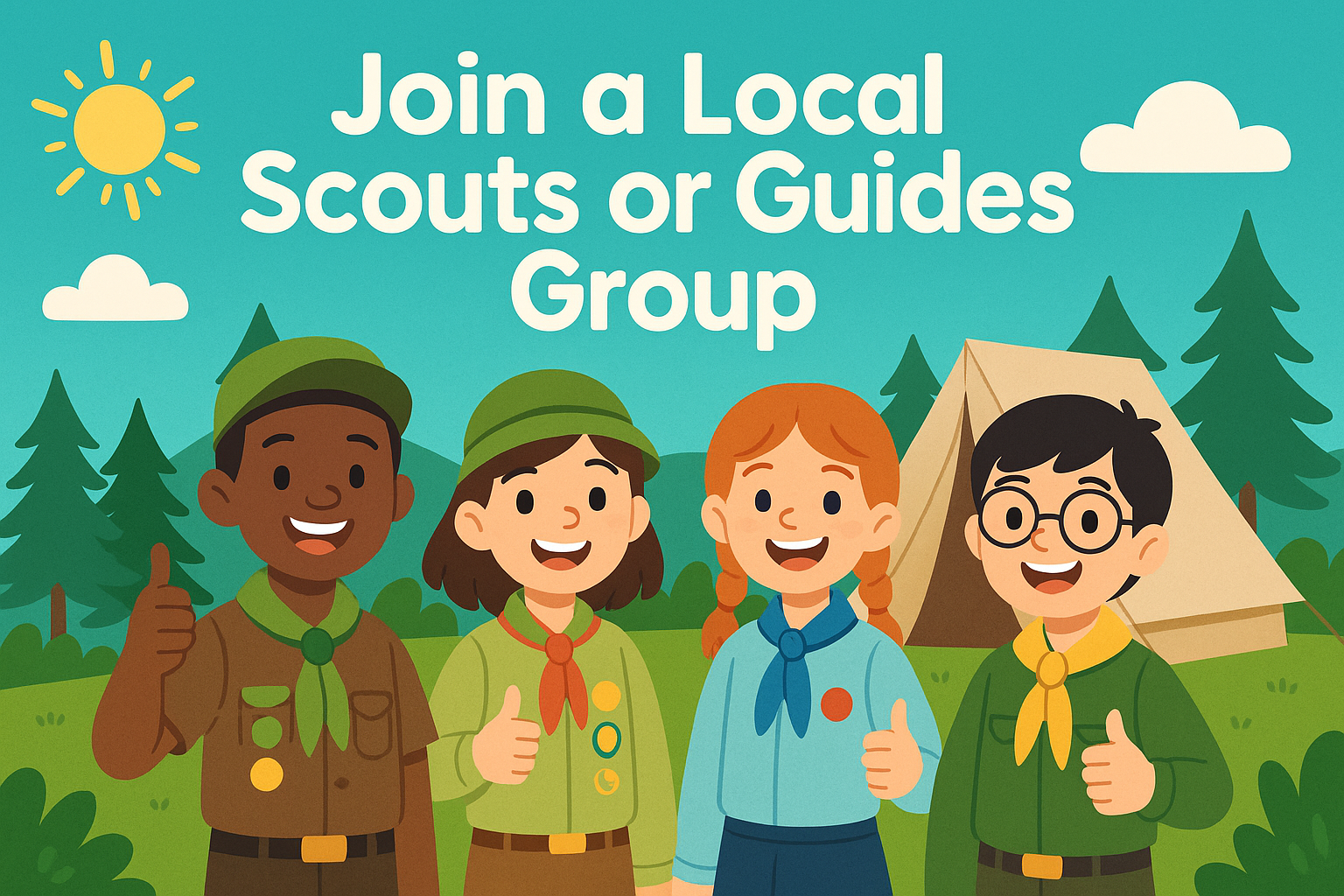Joining a Scouts or Guides group is a brilliant way for children and teens to gain confidence, make friends, and learn practical life skills.
These groups meet weekly in local halls or community spaces, often with opportunities for outdoor adventures, camping, creative crafts and team-building games.
There are different sections based on age, with welcoming leaders and age-appropriate activities. Children work towards badges, explore nature, get involved in the community and try new challenges — from campfire cooking to map reading, creative arts to volunteering.
Why It’s Great
- Friendship & Belonging – Build strong bonds with peers in a supportive, inclusive environment.
- Life Skills – Learn everything from knot tying to leadership and teamwork.
- Adventure – Get stuck into outdoor fun like camping, hikes, and orienteering.
- Creativity & Responsibility – Take part in arts, crafts, community projects, and practical challenges.
Group Types by Age
Mixed (boys & girls)
- Beavers (6–8) – A fun introduction to Scouts with crafts, teamwork and nature walks.
- Cubs (8–10½) – A step up in Scouts with more outdoor skills, camping, and challenges.
- Scouts (10½–14) – Outdoor exploration, skill-building and exciting group adventures.
- Rangers & Explorers (14–18) – More independence and chances for big projects, expeditions, and volunteering.
Girls only
- Rainbows (5–7) – Guiding for girls starting their journey through games and stories.
- Brownies (7–10) – Guiding for girls with more independence and adventurous activities.
- Guides (10–14) – Girls explore leadership, life skills and make a difference in their community.
How to Get Started
- Visit scouts.org.uk or girlguiding.org.uk.
- Use their group finder tool to locate a local unit accepting new members.
- Contact the group leader to arrange a trial session or waiting list spot.
- Uniforms are often introduced after a few sessions — financial assistance is available if needed.
Safety Tips
- All leaders are DBS-checked and trained in safeguarding and first aid.
- Children can attend trial sessions to see if it’s a good fit before committing.
- Parents and carers are often encouraged to volunteer or assist where possible — it’s a great way to get involved too!


Leave a Reply